289 Sports > Basketball > The second battle of the Western Conference Finals: What to do if you fix the disadvantages of your shortcomings?
The second battle of the Western Conference Finals: What to do if you fix the disadvantages of your shortcomings?
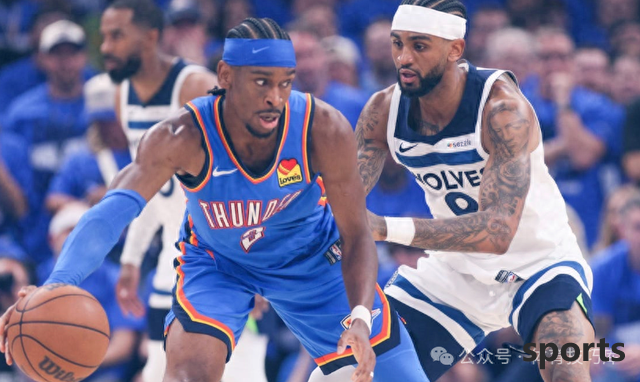
The second game of the Western Conference Finals, the Timberwolves fell 0-2 in the series.
After experiencing the lessons of the first game, the Timberwolves made many changes in the overall strategy of the game. Edwards significantly added more small-scale cooperation in personal singles, and also incorporated more decisive and resolute movements without the ball and the ball rushing to the penalty area. The entire team's offense is obviously more layered.
However, this team lacks traditional ball control points in lineup construction, and the general advantages and disadvantages of players are obvious. Once the three-point ability cannot maintain the hot situation in the first half, it will be difficult to break the game.
Faced with Alexander's unsolvable performance, who had just won the MVP trophy, it was difficult to stop him, and he could only watch the victory of the game and leave.
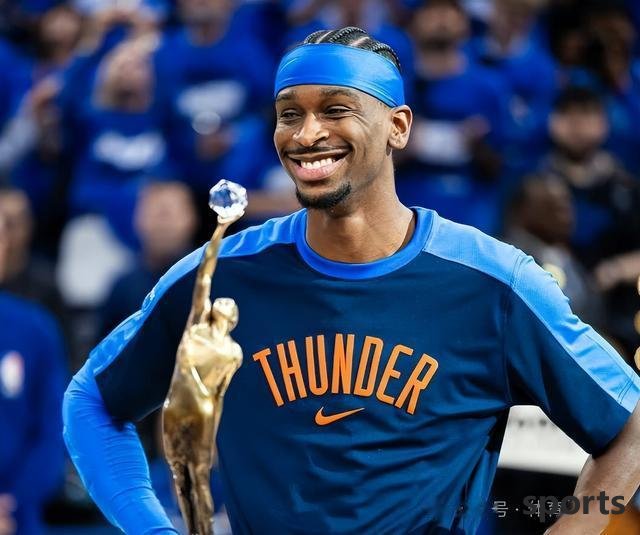
Recalling the previous game, the Timberwolves' shooting distribution was obviously affected by the Thunder's defense. This game began to adopt more different methods, creating more opportunities to enter the penalty area, so as to seek a closer-frame ending opportunity with a higher hit rate; or to attract other people's assisted defense to improve the peripheral shooter's chances of making a move.
Edwards, Gobert, Conley and others executed more screenings and handed over before breaking through, making it difficult for the assistant defense to control the defensive position, giving Edwards many opportunities to find the outside gap after breaking through, among which McDaniels was the biggest benefit point in the first half.
In addition, head coach Finch began to use weak side running in this game to take away assisted defense, creating one-on-one low-post offensive opportunities on the strong side. Edwards, Reed and others can get a lot of offensive opportunities under tactical arrangements. This tactical strategy of relying on opening the projection space from the inside out makes it easier for the Timberwolves to get into the rhythm in this game than in the previous game.
However, after creating an open space in the third quarter, he handed out 0 of 6 three-pointers, the Timberwolves' offense was obviously in chaos again, and the quality of the pass was gradually declining, and they kept falling into the trap set by the Thunder on the pass.
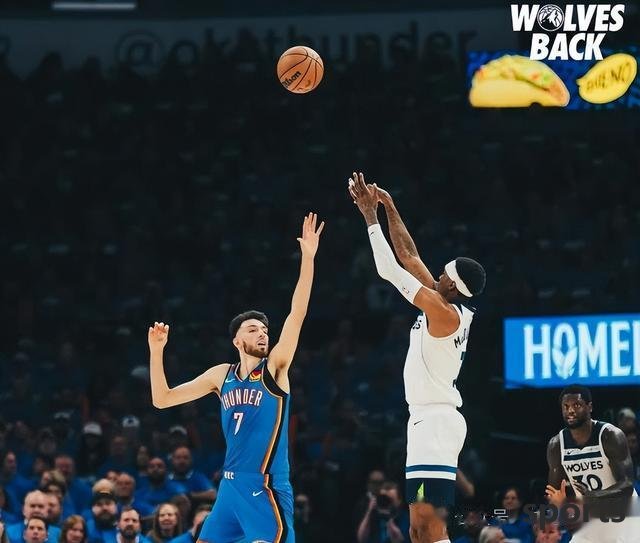
started around 6 minutes in the third quarter, and the shooting was dull and the pass made a mistake, causing the Timberwolves' focus on returning to defense to decline, and the Thunder was able to open the game through the conversion counterattack that they were best at; even though Fincher adjusted in time and tried to relied on the joint defense of the second and third regions to disrupt the rhythm of the Thunder, after facing the Nuggets in the semi-finals, the Thunder was able to skillfully face the regional joint defense and find a mobile phone.
Among the superposition of various factors, the Timberwolves faced Alexander and Jewish, who had full firepower on the offensive end in the first half, and the game was basically irrescueable.
As the loser, if we want to mention who was the worst player in this game, compared with the hot state of the second leader of the Thunder, Jewish, Randle, the second leader of the Wolves, is definitely the most disappointing.
For this, I personally believe that both head coaches Finch and Randle themselves are responsible. In this game, Finch's use of Randle's use of the game was not only low-post offense, but he did not participate in too many offensive tactics launched by the top of the arc, but chose to give up the position of the two wings to Edwards and McDaniels. Randall's organization-first low-post advantage makes him need time to observe the game, but in this blink of an eye, the Thunder can force Randall to make mistakes. As a player who only made 74 three-pointers in the bottom corner, he basically does not have the value of creating an advantage for his teammates in the bottom corner.
But this is not the key to Randle's complete downturn. The real reason for him to be substituted is mainly because he acted as a second-tier co-defender in two transition defenses. Not only did he not interfere with Alexander, but he even had a bad position so that his opponent scored two plus one. The disadvantages on the defensive end and the sluggish assisted performance ultimately forced Finch to turn to Gobert to consolidate the defense.
But after Gobert's appearance, the flaws of Divinchenzo and Walker were once again highlighted. As the team's No. 1 position, the former's organizational method basically only has the value of breaking through the bottom line, which leads to the Thunder being able to make his mistakes very simple; while the latter's organizational ability is barely qualified when judging the empty space of the peripheral teammates, but if he is required to serve as the offensive starting point for commanding his teammates, the ability shortcomings are very obvious.
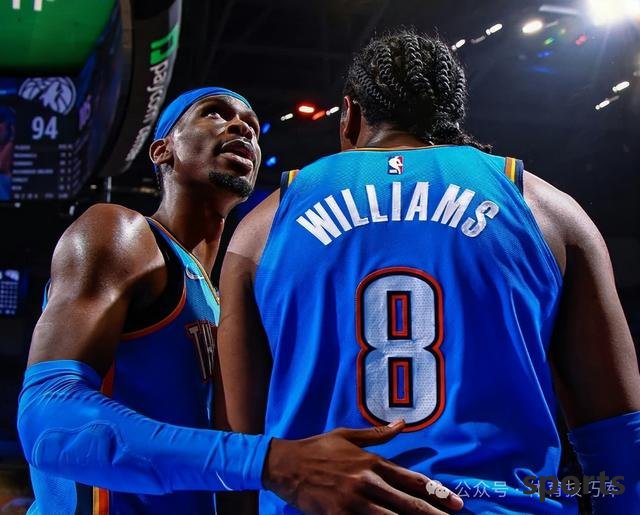
Both are excellent high-quality 3D characters, but the obvious flaws on the organizational side, coupled with Gobert's monotonous attack, ultimately, the Timberwolves have difficulty having a chance to turn the tables in the face of a disadvantageous situation.
In short, whether the Timberwolves choose offense or defense, the players' advantages and disadvantages are too obvious, resulting in the Thunder, which has a complete lineup, can select opponents' shortcomings in a targeted manner to focus on attacks, pull the game back to the rhythm of their team, and build an advantage step by step.
series follow-up prospect:
The Timberwolves made obvious progress in the second game. The choice and transmission of the periphery were far better than the previous game, but the offensive feeling in the second half of the game dropped rapidly, and finally brought the game back to the rhythm of the Thunder, and the defeat was inevitable.
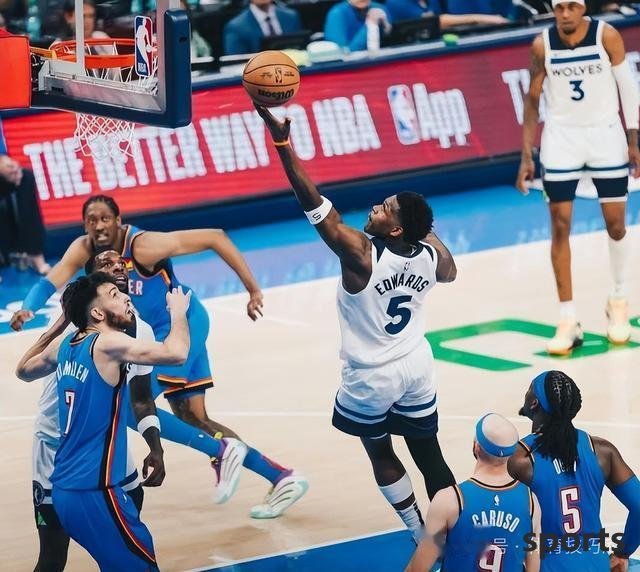
For subsequent games, head coach Finch still has to find a reasonable way to integrate Randall into the team. Judging from the first two games, the Thunder occasionally chose to retreat to defend when facing Edwards, but Edwards's periphery shots have never found the rhythm, and it is difficult to punish the Thunder's throwing strategy, which is also something he urgently needs to adjust in the next game.
Although before the start of the series, we had already foreseen that the Thunder was the strongest opponent to amplify the Timberwolves' weaknesses, for the Timberwolves, facing the inherent flaws of difficult adjustments in the short term, whether they can calm down and play to their strengths and avoid their weaknesses in the third game will be the key to whether the series front can be extended.
Related Posts
Xia Ji: Caleb Martin and Buwe have participated in training and are expected to appear in the opening game
BasketballHupu News, October 19 Today, according to TA Mavericks reporter Christian Clark, forward Caleb Martin and defender Brandon Williams have participated in training and are expected to appear in the opening game. In addition, Daniel Gafford conducted n...
moreFamous reporter: James and his business partners have withdrawn from the new $5 billion international basketball league plan
BasketballOn October 19, ESPN reporter Brian Windhorst wrote an article reporting on the business plan of the Middle East consortium in the international basketball market. Windhorst mentioned in the article the new international basketball league plan that J...
moreIt’s decided! The Rockets laid off 4 people in a row in one day, the 17-man lineup was released, and 3 people with two-way contracts successfully stayed on the team.
BasketballOn October 19th, three days later, the Rockets' first regular season game will come. The Rockets' first opponent is last season's defending champion, the Thunder with MVP Alexander. The Thunder defeated the Pacers 4:3 in the finals last...
more
Hot Posts
- Last season, averaged 9.7 points and 2.2 rebounds! Jersey Reporter: Coffey wore No. 17 jersey in the Bucks
- 18 years of the showdown in the league to looking up to the new king, the legend continues
- Durant himself never thought he could enjoy super high treatment in his life, but he came to the right place!
- The park championship has no value? American News: The Lakers have better psychological adjustment and beat many stars all the way
- As strong as Jokic is only the No. 41 pick in the second round in 2014. Who are the top five in the same class? Tanhua became an MVP
- Well-known reporter: The Lakers center may get a contract of 5.2 million, but he may still stay with the Lakers
- The logo of the NBA tough guy: Kobe s Achilles tendon, Rose s knees, Green s heart
- Top Ten Wicked People in NBA History: Dream Chasing Green is on the list, and there is no dispute!
- A wise man will make a mistake. James counts the 20-year trend of the league, but he has not counted these 5 things
- Three-point shooting percentage is 48.2%, top 3D with an average of 14+6 per game, and only 33 million yuan. Do you regret it, Celtics?
Recent Posts
-
The Mavericks fourth operation! The two perfect matches of Thick Eyebrows join, with a winning rate of 62%, the fourth championship team in the West
-
Famous: The Rockets need players like Butler, and the team is only a few veterans away from rising
-
Media person: Henson met 2 CBA acquaintances at the Trail Blazers and flew to the second stop immediately after completing the trial
-
Killing crazy! Famous reporter Shams: Rockets sign 3D wing Okogi with a minimum salary of 3.1 million yuan a year
-
Go home basketball +1, Finney Smith for Ayton and Laravia
-
Team reporter: The Lakers are only slightly worried about James injury. He originally planned to slowly improve his condition.
-
Average of 14+3+4, Brownie has improved! In contrast, Kneckett
-
Shen Jing scored 25+ points in three consecutive games, the new 3 cores are confirmed, the Rockets no longer shout slogans
-
Shams: Beasley will be investigated by the federal prosecutor s office for suspected involvement in football betting
-
If you don’t believe it, look at it - the key to winning the championship! Just do it better, and the Pacers do it well and win the championship with three points!